Why You Need Vitamin C in Your Morning Skincare Routine.
Over the last few years, I took a deep dive into improving my skincare routine.
I wanted to figure out, as a 40-something-year-old woman, what I was missing.
I very quickly learned that the answer was Vitamin C.
Specifically, add vitamin C to your morning skincare routine.
I discovered so much helpful information that I want to share it with you, too.
What Vitamin C Does for Your Skin.
Vitamin C serum is a potent topical product that helps produce collagen, which we begin to lose as we age.
Collagen is what gives our skin a bounce.
It helps with elasticity and hydration, making smooth, revitalized, youthful skin appear.
Because Vitamin C is highly acidic, when applied, the skin is triggered to ‘heal’ itself by accelerating collagen and elastin production.
That acidity also acts as a mild exfoliator, so if you have dark spots or hyperpigmentation, Vitamin C will also help fade those areas.
Why Should You use Vitamin C in Your Morning Skincare Routine?
Here’s where skincare truly becomes science.
Adding the proper products in the correct order can make a significant and lasting difference in your skin.
Vitamin C should be used in your morning skincare routine for several reasons.
First and foremost, it will help protect against free radicals. When used with a broad spectrum SPF 30 (or more), which we should all be using every day, we give our skin double protection.
Vitamin C is best used in the morning since you likely use Retinol at night.
The combination is too much for most skin types to use at once. So use Vitamin C in your AM routine and your Retinol in the PM.
The best way to apply is in the morning after you cleanse and before you moisturize and use sunscreen.
Here’s my morning routine:
There is a lot of debate right now about whether or not to wash your face first thing in the morning.
I do.
A few days a week, I wake up at an unholy hour to go workout.
On those mornings, I wash my face immediately to help me wake up. I use the Tatcha oil cleanser; it’s light and doesn’t strip my skin of moisture.
Other mornings, I’m up a little before six and do my routine when the kids are all off to school.
A million things have touched my face by then, so I want a good cleanse. I use the La Roche-Posay Toleriane Hydrating Gentle Face Cleanser and follow up with the REN Ready Steady Glow AHA Toner.
Let the toner dry for a minute, then apply your Vitamin C.
The Best Vitamin C Serums
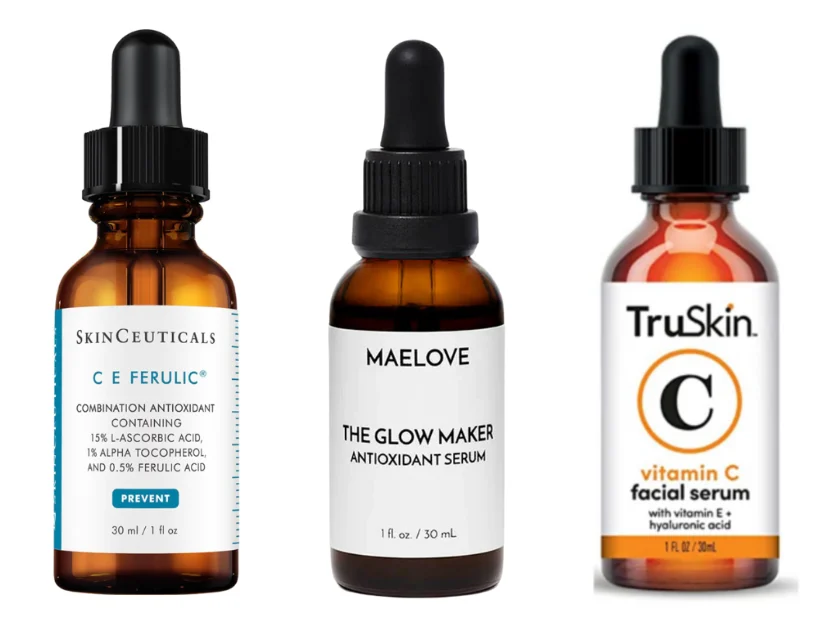
SkinCeuticals C E Ferulic, $182, | MAELOVE The Glow Maker, $33 | TruSkin vitamin C Serum, $20
I tried many Vitamin C treatments over the last few years at all prices.
The Goop Glow Vitamin C Serum was on the expensive end at $125. I love a lot of Goop products, but this one was underwhelming at best.
Then I gave the french drugstore brand, Vichy’s LiftActiv Peptide-C Ampoule Serum Anti Aging Concentrate a try. I liked the product; the problem was I went through it too fast.
So while the initial cost was only $30, I was constantly reordering, and opening and saving capsules became annoying, time consuming and wasteful.
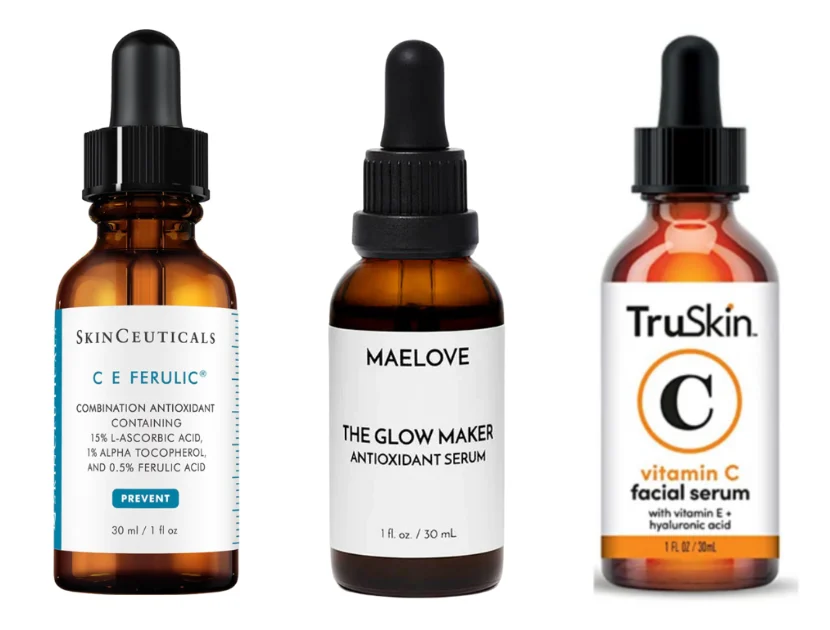
TruSkin Vitamin C Serum, $20
Let’s start with the splurge.
SkinCeuticals C E Ferulic comes highly recommended by dermatologists, and, on Dermstore alone, it has over 5,000 5-star reviews.
I’m pleased to say, if you’re looking to spend and get results, it is fantastic.

You only need a few drops every morning.
Gently PRESS it into your skin. You might feel a slight tingle – that’s okay.
Then, let it absorb before you add your moisturizer and SPF. Brush your teeth, make the bed, to give it a minute.
Vitamin C is a potent topical that gives both immediate and long-term results. So you’ll get an instant glow and eventually will see an evenness and brightness.
Keep in mind that this is NOT hydrating. Other products on the market mix hyaluronic acid into their formula, but this does not.
So put it on, let it sink in, and add your hydrating serums and lotions and your SPF last.
Some reviews say this smells bad. It depends on the person, but I put this right to my nose and didn’t smell anything. So I can’t speak to that.
With continued use, after a few weeks, I saw a noticeable change in the surface of my skin.
Some mild dark spots softened, and the acne scars on my cheek disappeared.
My skin appeared smoother, brighter, and firmer,
It’s expensive, but it is considered best of class when it comes to Vitamin C, with a patented formula that is the industry standard.
There are, however, other options at affordable prices.
I discovered The Glow Maker from Maelove from a reader who emailed me singing its praises.

It’s considered a “dupe” for SkinCeuticals offering a similar formulation. I used up two bottles, and it’s fantastic. I got the same glow as I did from SkinCeuticals for a fraction of the price.
Finally, if you are just getting started with Vitamin C, consider TruSkin Vitamin C Serum on Amazon for under $20.

It’s gentle and has Hyaluronic Acid, so it’s also hydrating and has over 100,000 five-star reviews. I’m impressed with this one. You get an instant glow, like you skin looks tight and smooth.
I bought a few bottles, but I saved one to open and left in in my fridge to see how much it oxidized, and it was minimal after four weeks.
Speaking of how to store it, I keep Vitamin C in the refrigerator to keep it stable.
Each of these bottle lasted me about a month.
Keep in mind, your best skin is never the result of one product, rather we need a layered approach, like get sleep, drink lots of water, cut out inflammatory foods, dial back the booze.
We need everything working together to get the best skin possible.
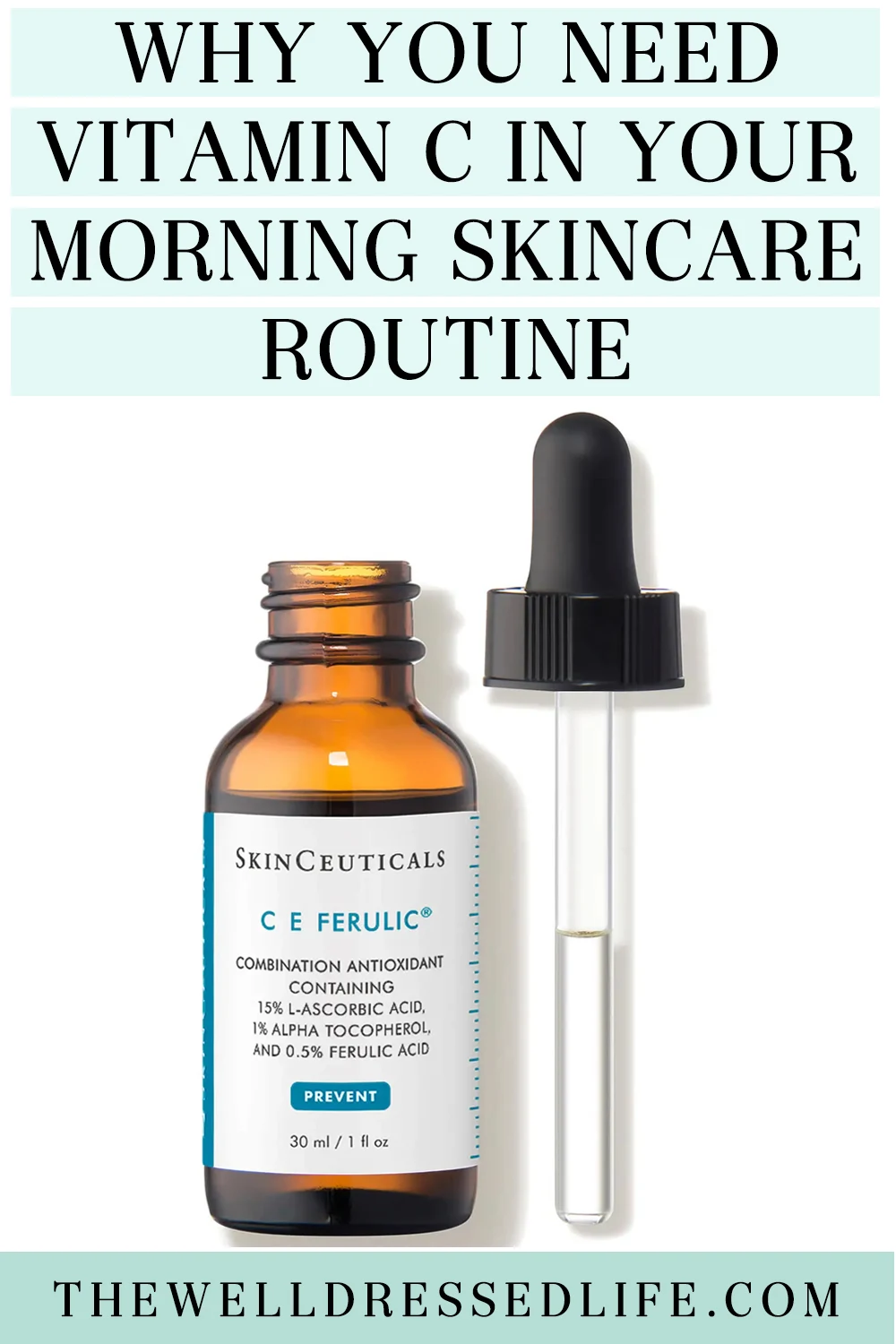

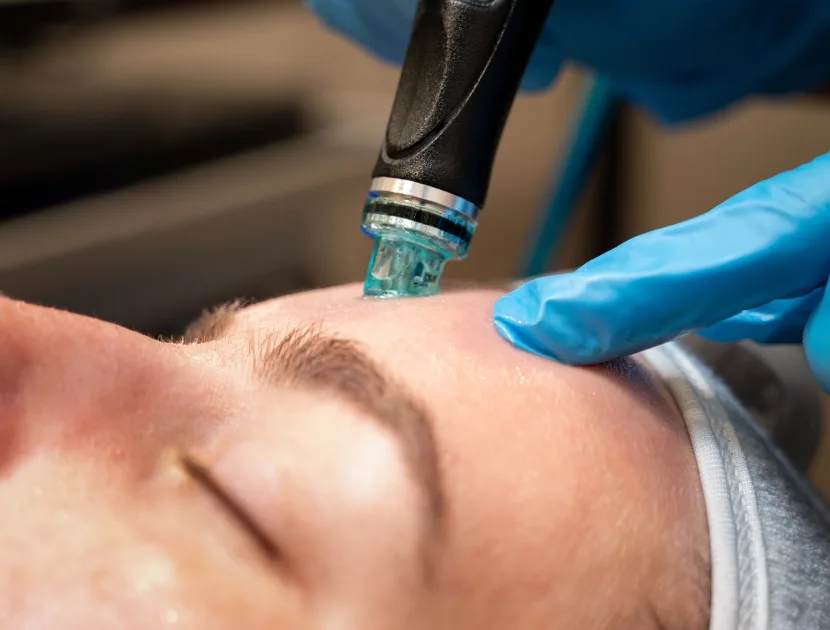
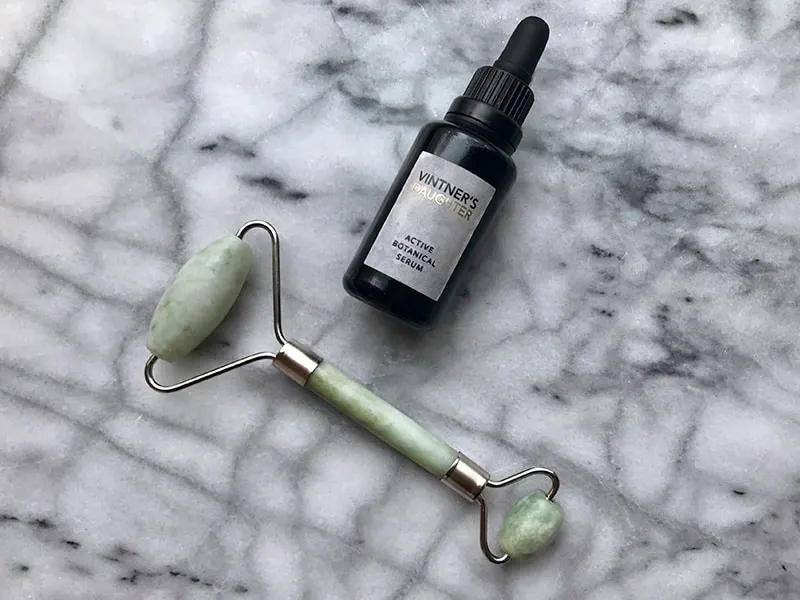
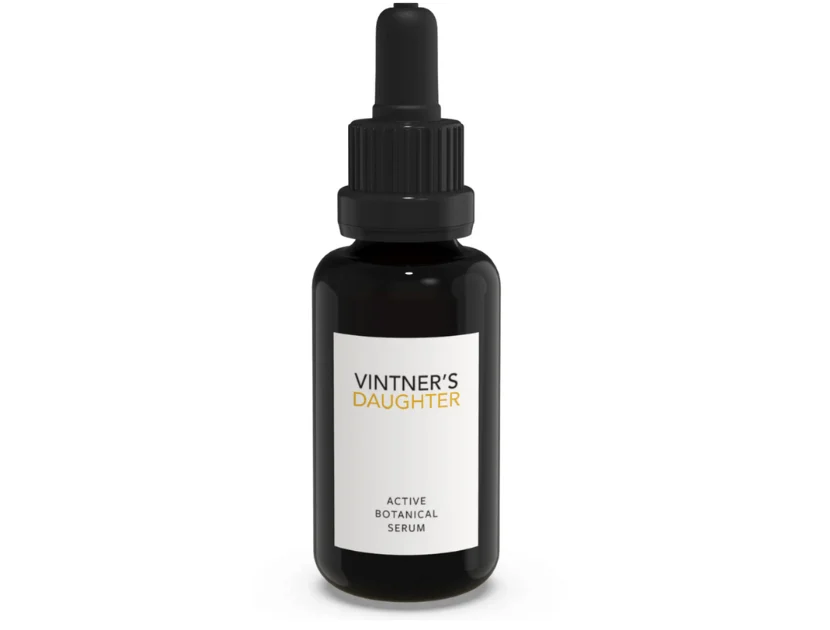

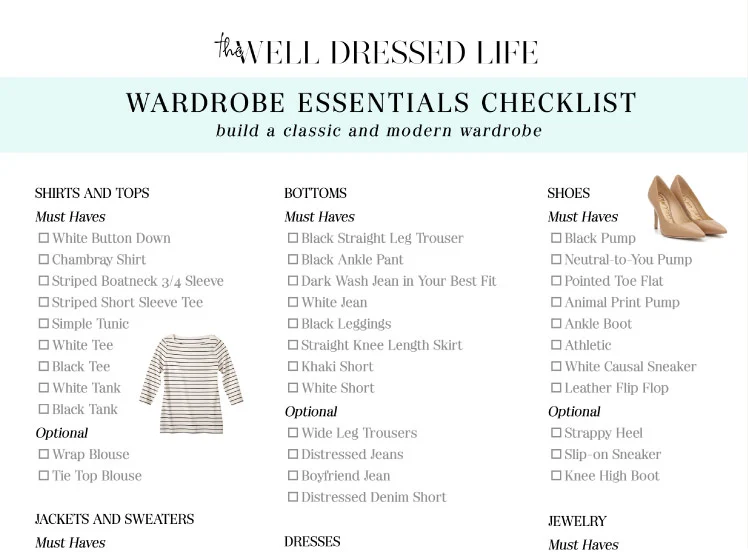
Leave a Comment